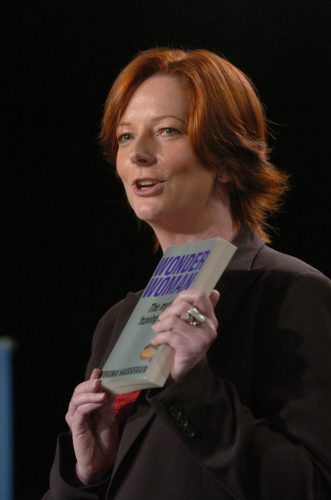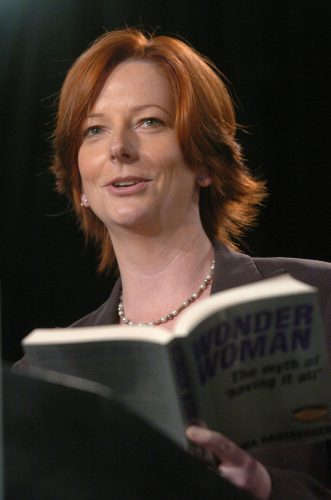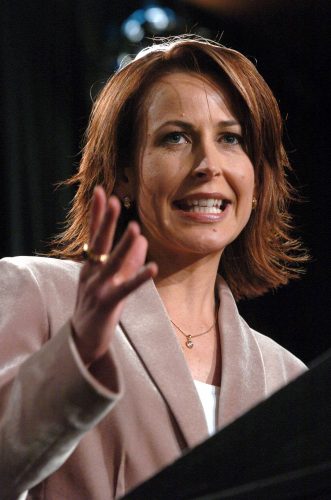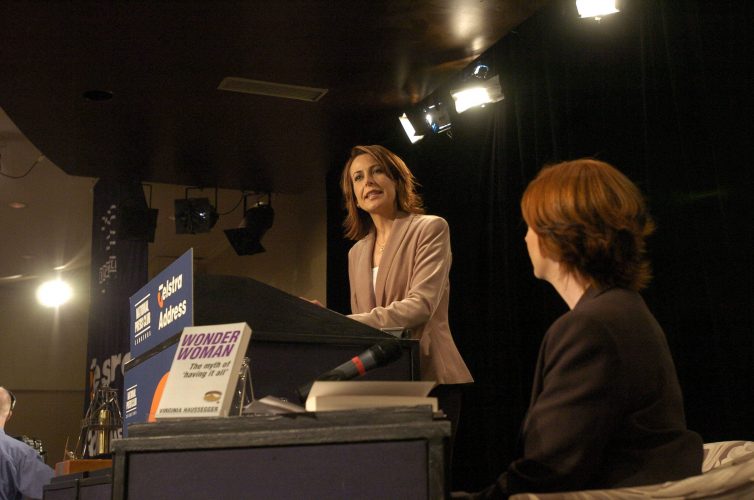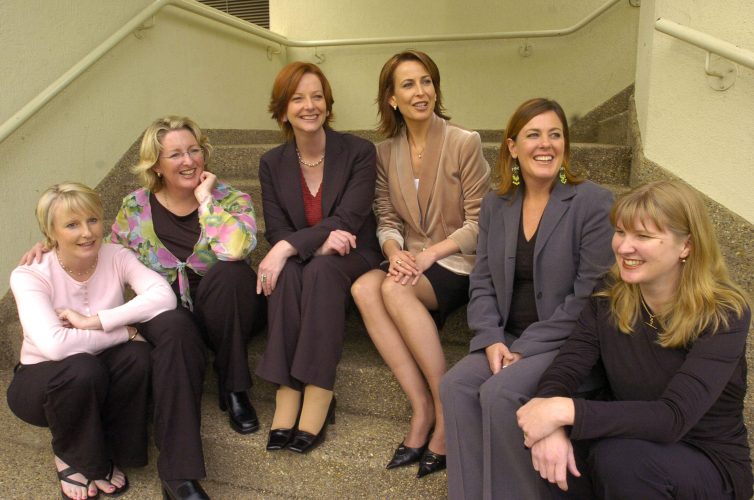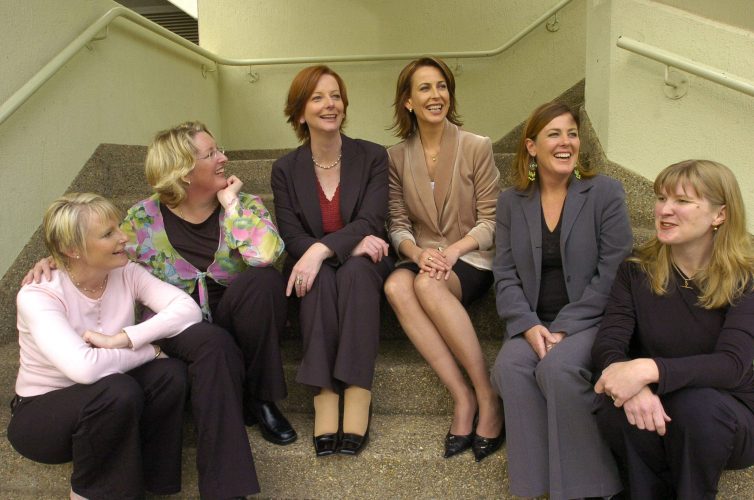It’s an odd thing. Even though Janette Howard clearly played a prominent role in the shape of Australia’s political history, I can’t remember what she sounds like. In fact, I can’t recall ever hearing her speak. And yet her words were crucial in influencing the actions of her husband the nation’s second longest serving prime minister.
She was his number one political strategist, according to Howard’s biographers, Wayne Errington and Peter Van Onselen. In their tome John Winston Howard, Janette is a constant presence; always in Howard’s orbit when deals are being done or leadership numbers sought. When she’s not in the room, she’s still in her husband’s ear. ”Janette’s input, even over the phone, was decisive,” they write.
The Lady Macbeth comparisons were rife towards the end of Howard’s reign, as many were convinced Janette was running the country. When the biographers put that rumour to her, she played coy, saying it was simply that her ”husband is clever enough to always make me think that my view is more important, more pivotal, than anyone else’s”.
To hear Peter Costello over the past week, it’s clear he doesn’t think Howard was pretending to listen to Janette. And when faced with his toughest decision – to stay or go – Howard chose to reject the view of his closest Cabinet confidants, and stick with his wife’s wishes instead.
Pity Costello wasn’t as attentive to his own wife’s views. If he’d listened to Tanya, like John listened to Janette, the current political landscape could have looked a whole lot different.
By the Costellos’ own account, as detailed to Ray Martin last Sunday on 60 Minutes, Tanya had urged Peter to run for the PM’s job in a ”gentle and laughing way”, but he hadn’t listened. Now, he says, that was the ”biggest mistake of my life”.
Unlike Janette’s prominence in the Howard biography, Costello’s wife rates very little mention in his memoirs. As far as the big decisions go, the reader is given the impression that Costello is used to making up his own mind. He writes that in the lead-up to the last election Tanya and he talked about what he should do in the event of a defeat, but he insists his wife said the decision was up to him.
Frankly, I’m having trouble believing that. Tanya Costello is a sharp, intelligent and clearly devoted spouse. Having weathered decades of political gaming and years nurturing her husband’s ambition, surely she had more to say than ”You make whatever decision you think is right”.
It’s hard to know if Costello is trying to downplay the true role of a spouse in influencing major career decisions, or if he’s gallantly attempting to take full responsibility for repeatedly failing to seize opportunities.
It’s probably a bit of both. But more importantly, I suspect he feels compelled to keep Tanya, and their private discussions, out of the public realm because he has made such sport of Janette’s influence.
This is a shame. To suggest a political spouse should be silent is both draconian and demeaning. Yet this confected demurring and spouse shyness is peculiarly Australian.
There was never any guessing where prominent spouses such as Cherie Blair or Hillary Clinton stood on a number of issues. Like them or loathe them, both women were never shy about being vocal when their husbands held office. Their influence on key decisions and positions taken by their spouse was both evident and transparent. Just as Michelle Obama and Cindy McCain are no doubt central to their husbands’ actions and decisions right now.
This week the influential Christian Science Monitor in the US complained that both Obama’s and McCain’s wives were getting too much media attention. Each woman gave a keynote speech at the party convention, and both have done extensive television interviews with some of America’s most influential commentators.
They have been canvassed for their views on just about every hot topic, including abortion, creationism, the war in Iraq, the environment, sex education and a whole lot more.
But is this spouse spotlight appropriate? After all, it’s not them standing for election. According to the Christian Science Monitor, ”A politician’s spouse should be a negligible factor”. Which just goes to show – yet again – how ludicrously doctrinaire and backward some Christian thinking can be.
Of course we need to hear from the spouses – husbands or wives – of those standing for top political leadership positions. Any modern marriage, or coupling, that supports one or two ambitious careers is first and foremost a partnership in the true sense of that word.
Our partner is our sounding board. We offload, we seek advice, we test out our theories, we debate, we defend, we listen and we merge a little or a lot. It’s as a partnership that we present ourselves to the world.
And when it comes to political leaders, there may be only one name on the ballot, but it’s the partnership that sits around the kitchen table at the Lodge, or the White House, or 10 Downing Street.
To deny the influence and input of a political leader’s spouse is counterproductive.
Sure, the American presidential campaign might horrify us with its evangelical excess and its massive expenditure, but beneath the hype is a valuable lesson in openness. The active contribution made by each candidate’s spouse demonstrates a level of sophistication that here in Australia we have failed to grasp.
It’s time to get the gag off.

